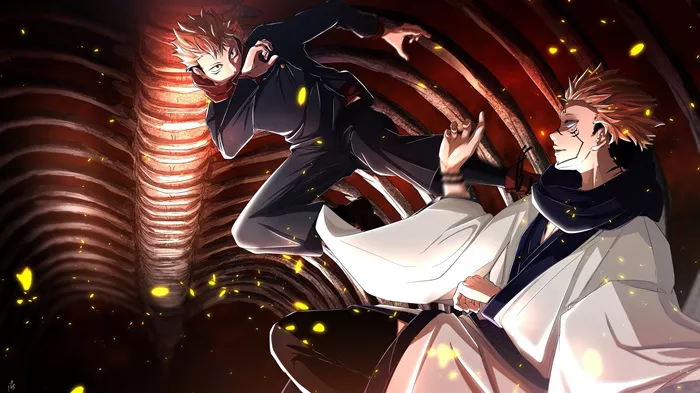Jujutsu Kaisen, a popular manga and anime series created by Gege Akutami, has garnered significant attention for its unique blend of supernatural action, compelling characters, and intricate plotlines. Central to the series is the concept of “jujutsu,” but what exactly does jujutsu entail within Jujutsu Kaisen? This article explores the essence of jujutsu as depicted in the series, its relevance to the characters and storyline, and how it shapes the narrative dynamics.
Jujutsu Kaisen
Jujutsu Kaisen revolves around Yuji Itadori, a high school student thrust into the world of curses, spirits, and sorcery. The series introduces viewers to a society where jujutsu sorcerers, skilled practitioners of mystical arts, combat curses—malevolent entities born from negative human emotions that threaten humanity.
Understanding Jujutsu in the Context of the Series
In Jujutsu Kaisen, jujutsu refers to a form of combat and exorcism practiced by sorcerers. These sorcerers harness and manipulate cursed energy—the spiritual energy generated by negative emotions—to battle curses effectively. The effectiveness of their jujutsu techniques often depends on their skill, experience, and affinity with cursed energy.
The Role of Jujutsu in Combat and Exorcism
Combat Techniques and Jujutsu Sorcery
Jujutsu sorcery encompasses a wide array of combat techniques and rituals designed to neutralize curses. Each character in Jujutsu Kaisen employs unique jujutsu techniques, ranging from offensive maneuvers to defensive spells and purification rituals. For example, characters like Satoru Gojo and Megumi Fushiguro showcase powerful jujutsu techniques that highlight their mastery over cursed energy.
Exorcism and Purification
Beyond combat, jujutsu in Jujutsu Kaisen serves the crucial role of exorcising curses from afflicted individuals and locations. Jujutsu sorcerers undertake missions to eliminate curses and protect ordinary people from supernatural threats. This aspect of jujutsu underscores its spiritual and protective dimensions within the series.
Training and Mastery of Jujutsu
Jujutsu Schools and Techniques
In Jujutsu Kaisen, various jujutsu schools exist, each with its own teachings, techniques, and philosophies regarding cursed energy and combat. Characters like Nobara Kugisaki and Panda exemplify different approaches to jujutsu training and application, highlighting the diversity within the jujutsu sorcery community.
Development and Growth
Central to the narrative is the growth and development of characters as they hone their jujutsu skills. Yuji Itadori’s journey, for instance, involves mastering jujutsu under the tutelage of seasoned sorcerers while grappling with the moral and personal implications of his newfound abilities.
Jujutsu and its Impact on Character Dynamics
Characterization through Jujutsu
The practice of jujutsu in Jujutsu Kaisen deeply influences character arcs and relationships. It serves as a catalyst for character development, revealing aspects of their personalities, values, and ambitions. Characters like Yuji Itadori and Megumi Fushiguro undergo significant growth through their experiences with jujutsu, shaping their identities as sorcerers and individuals.
Interpersonal Dynamics
The dynamics between characters within the series are often shaped by their jujutsu abilities and affiliations. Alliance and conflict arise based on differing ideologies regarding jujutsu and its ethical implications. These dynamics contribute to the series’ overarching themes of camaraderie, sacrifice, and the moral complexities of wielding supernatural power.
See Also: How Long Did It Take to Make Spirited Away?
Ethical Considerations and Themes in Jujutsu Kaisen
Ethics of Jujutsu Sorcery
Jujutsu Kaisen explores the ethical dilemmas associated with jujutsu sorcery, particularly the use of cursed energy to combat curses. Characters confront questions of duty, responsibility, and the consequences of their actions as sorcerers. This thematic exploration adds depth to the narrative and prompts viewers to reflect on the nature of power and its implications.
Themes of Redemption and Sacrifice
Jujutsu in Jujutsu Kaisen also serves as a thematic device for exploring themes of redemption and sacrifice. Characters like Sukuna and Todo embody conflicting perspectives on jujutsu and its potential for both destruction and redemption, offering nuanced perspectives on morality within the series.
Conclusion
Jujutsu Kaisen intricately weaves the concept of jujutsu into its narrative fabric, portraying it as a multifaceted discipline with profound implications for its characters and storyline. From combat techniques and exorcism rituals to ethical dilemmas and thematic exploration, jujutsu serves as a pivotal element that enriches the series’ world-building and character development. As the story continues to unfold, the role of jujutsu in Jujutsu Kaisen promises to evolve, offering viewers further insights into its mystical and narrative significance.

